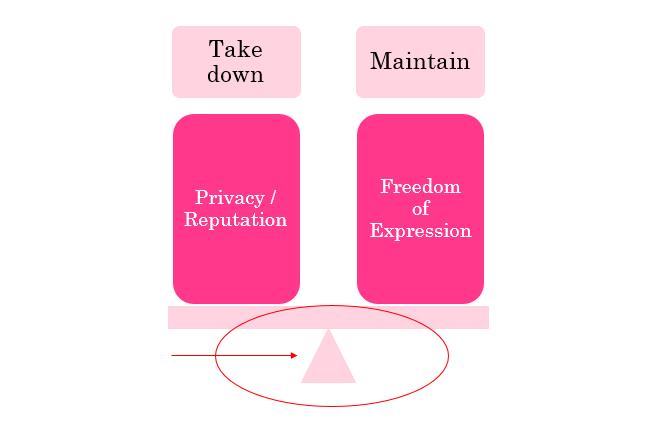Blog
News
VOX-Pol Coordinator to Contribute to Discussion Panel on Artistic License at Science Gallery Dublin
October 26, 2016VOX-Pol’s Cordinator, Prof. Maura Conway, will contribute to a panel discussion over different approaches to extremist material taken by museums, search engines, religions, academia, counter-extremist researchers and others. The event is scheduled to take place at Science Gallery Dublin on Thursday, 27 October. Focusing on specific examples, including Islamic State’s online magazine Dabiq, the panel will debate ...
News
Joint INFOCORE, MeCoDem, VOX-Pol Workshop on Social Media, Conflict and Democracy to be held in Brussels
October 26, 2016VOX-Pol, in conjunction with two other EU FP7-funded projects, INFOCORE and MeCoDem, will hold a joint workshop themed “Social Media, Conflict and Democracy: Utopian Visions, Dystopian Futures and Pragmatic Policies” at the Press Club Brussels on Friday, November 18. The workshop will be of interest to, for example, journalists, scholars, activists, policy-makers, NGOs and think tanks. Among the central questions to ...
Blog
Online Responses to Terrorist Attacks: A #niceattack Case Study – Part 1: The First 20 Minutes
October 19, 2016This blog post and a follow-up next week analyse Twitter activity following the terrorist attack that took place in Nice, France on 14 July, 2016 and associated real-world events during the ensuing week. It is part of a larger project exploring hashtag activism in CVE. This first posts traces the online reaction to developments during ...
Blog
Bridging Computer Sciences and Social Sciences: The Search for Extremist Content Online
October 12, 2016By Ryan Scrivens There’s been a shift in recent years in how researchers investigate online communities, whether it’s the study of how extremists communicate through social media or analysis of users connecting through online health forums. In particular, scholars who do this work are shifting from manual identification of specific online content to algorithmic techniques ...
Blog
Women’s Key Role in Islamic State Online Networks, Explained
October 5, 2016By Neil Johnson In early September, three women were arrested in Paris for attempting to detonate a car bomb outside Notre Dame cathedral. “If at first it appeared that women were confined to family and domestic chores by the Daesh terrorist organization, it must be noted that this view is now completely outdated,” François Molins, a ...
Blog
Tips and Tricks from Google/YouTube, Facebook, and EXIT Germany for Effective Online CVE
September 30, 2016The EU’s Radicalisation Awareness Network (RAN) brings together practitioners from around Europe working on the prevention of radicalisation. The aim of RAN’s Communication and Narratives (C&N) working group is to gather insights on both online and offline communication that 1.) offers alternatives to or 2.) counters extremist propaganda and/or challenges extremist ideas. The following is ...
News
EC – VOX-Pol Lunch Briefing Series
September 26, 2016The VOX-Pol Network of Excellence invites you to a series of Lunchtime Briefing Seminars, this autumn in Brussels, each exploring a different aspect of Violent Online Political Extremism The series is jointly organised by the VOX-Pol Network of Excellence and the Representation of the European Commission in Belgium. The briefings are aimed at an audience of policy ...
Blog
Accusations in a Mirror: ISIS, Anti-Muslim Hate Speech, and the Refugee Crisis
September 21, 2016Rather than analyzing the so-called ‘Islamic States’’ use of (social) media, in this post Dr. Matti Pohjonen, VOX-Pol Research Fellow 2016, explores if parallels can be drawn between it and a topic he’s more familiar with: far right anti-Islamic hate speech. Following the Paris, Brussels, and other attacks, newspaper commentaries have routinely warned about the ...
Blog
Responsible Communication by Internet Intermediaries
September 14, 2016By Marcelo Thompson In debates concerning Internet intermediary liability, an often-expressed view is that intermediaries (such as Facebook and Google) shouldn’t be turned into adjudicators, who reason and decide about the legal or illegal nature of content they host, and thus about whether or not to take such content down. But is that a plausible view? ...
Blog
Computational Social Science: Understanding Terrorist Attacks on Twitter
September 7, 2016By Erin C. McGrath and Cody Buntain Reported terrorist attacks increased dramatically over the last decade or so, from just under 3,000 per year in 2001 to nearly 17,000 in 2014, amplifying the number of people subjected to the effects of terrorist attacks nearly six-fold over the last decade. At the same time, the introduction, popularity, ...









